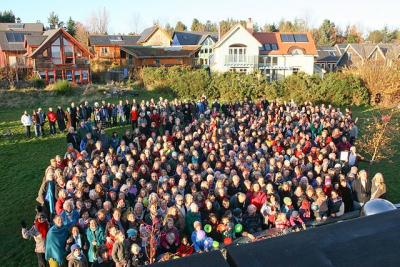
All in all, the top revenue streams for intentional communities tend to be tourism, education (workshops and trainings), crafts and artisanal goods, and agriculture. As the historian Yaacov Oved observed in Two Hundred Years of American Communes (1987): ‘[In New Harmony] the only prosperous venture was the local hotel, where the many tourists and the curious who came to see with their own eyes Robert Owen’s famous social experiment were put up.’ In fact, Owen covered New Harmony’s overall losses with a private fund. When he did make the balance sheet publicly available, community members were shocked at their illusion of self-sufficiency.
[...]
The question confounding nearly all those seeking alternatives to mass society, says the dystopian novelist Margaret Atwood, is: ‘What sort of happiness is on offer, and what is the price we might pay to achieve it?’ The puritan impulse towards the suppression of passion, like Penn’s insistence on sobriety, was a high price to pay for belonging. But the loose sexual practices of secular communes in the 1960s and ’70s created immense jealousies and conflicts that just as readily caused many communities to implode. Most people, of course, flock to intentional communities to fulfil emotional needs, but the capacity of a community’s relational skills are quickly tested by the personalities of its members: as Winiecki explained to me about Tamera: ‘If you go deep in a group, you can find all the light and shadows of humanity.’
Speaking about her time at Findhorn, the social entrepreneur Kate Sutherland told me: ‘It’s not utopia. It’s microcosm. Everything that’s in the outer world is there – marginalisation, addiction, poverty, sexual issues, power. Communities are just fractals of society.’ The difference for Sutherland was that in Findhorn there was good will and a clear commitment to waking up: ‘People are willing to look at their stuff.’
Go to the GEO front page

Add new comment